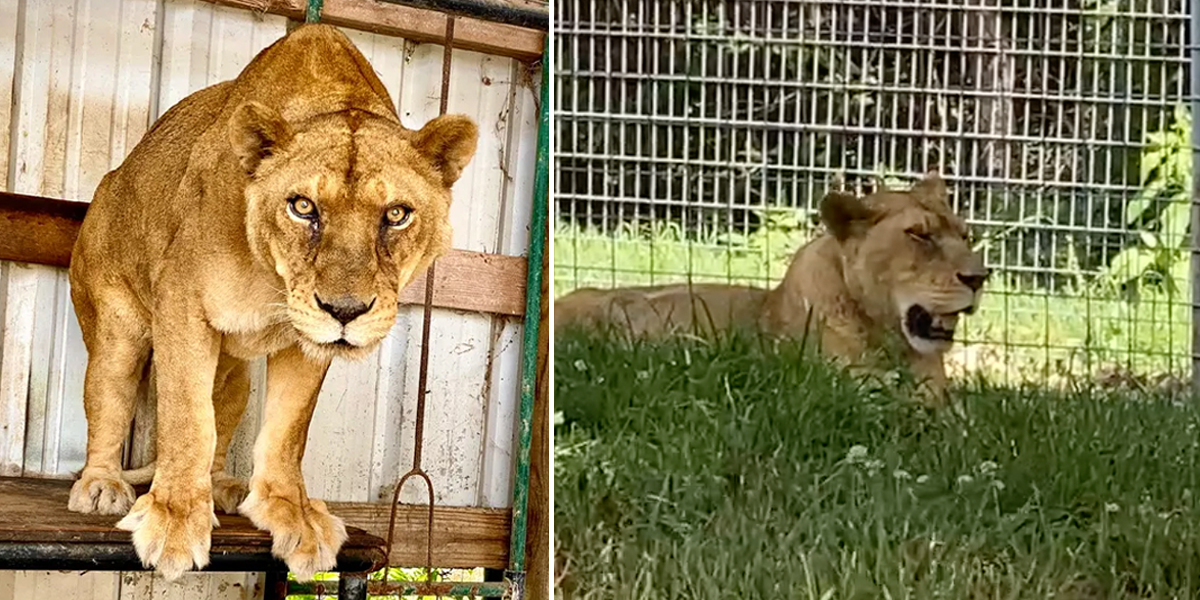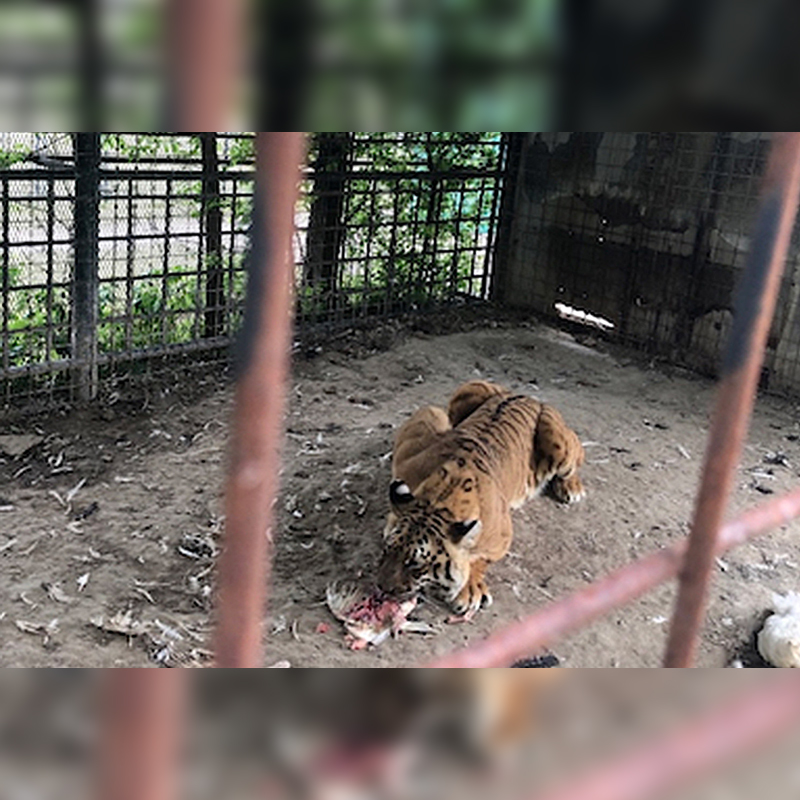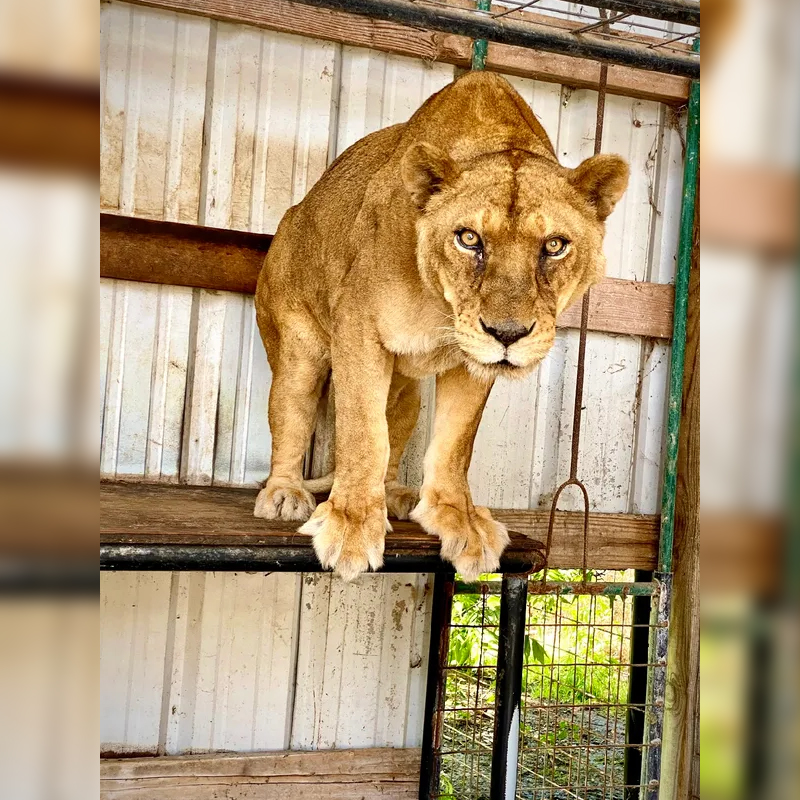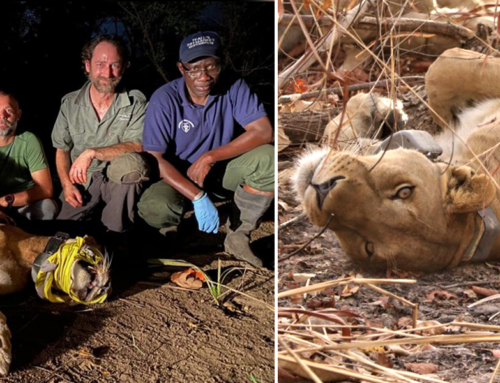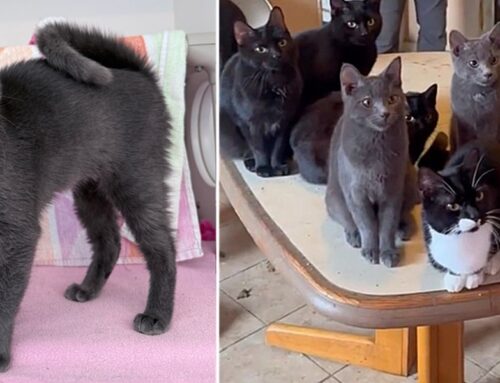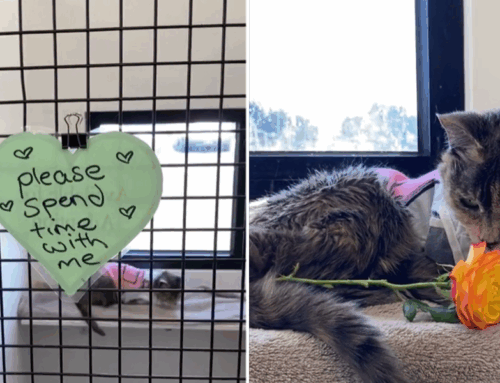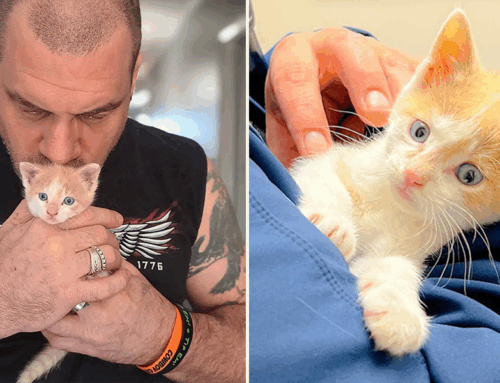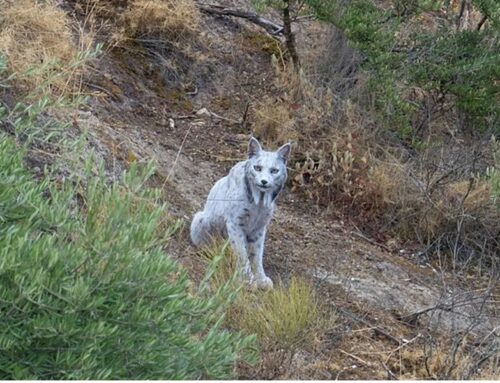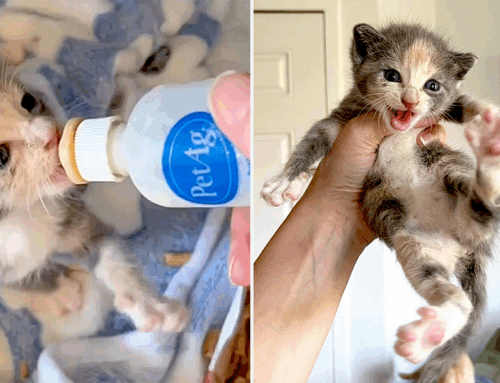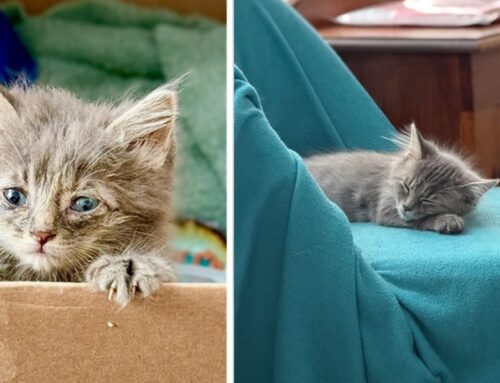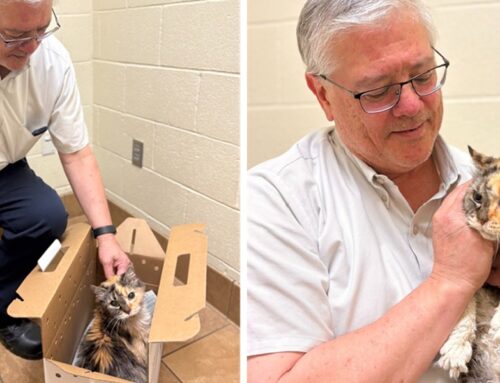For most of her life, this elderly lioness never felt grass beneath her feet. Instead, she and several other big cats walked on nothing but concrete. For these big, beautiful cats, home was a dank drive-thru zoo in Oklahoma. This surely must have been a house of horrors.
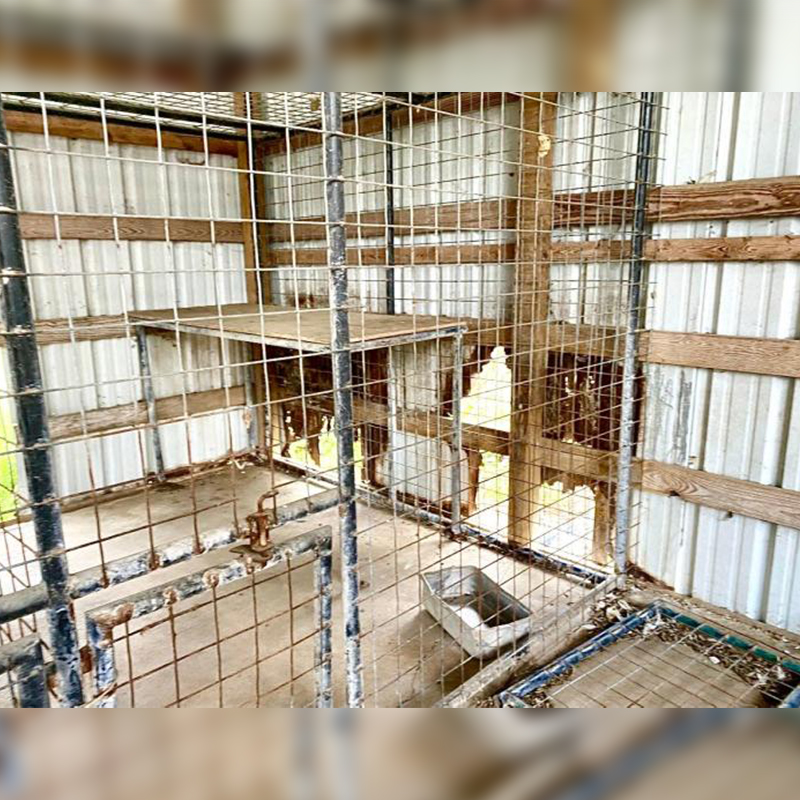
Image: Oakland Zoo via Yahoo!
The USDA shut the zoo down in 2008 due to a number of safety and welfare violations, according to a news release from the Turpentine Creek Wildlife Refuge. The refuge is based in Eureka Springs, Arkansas.
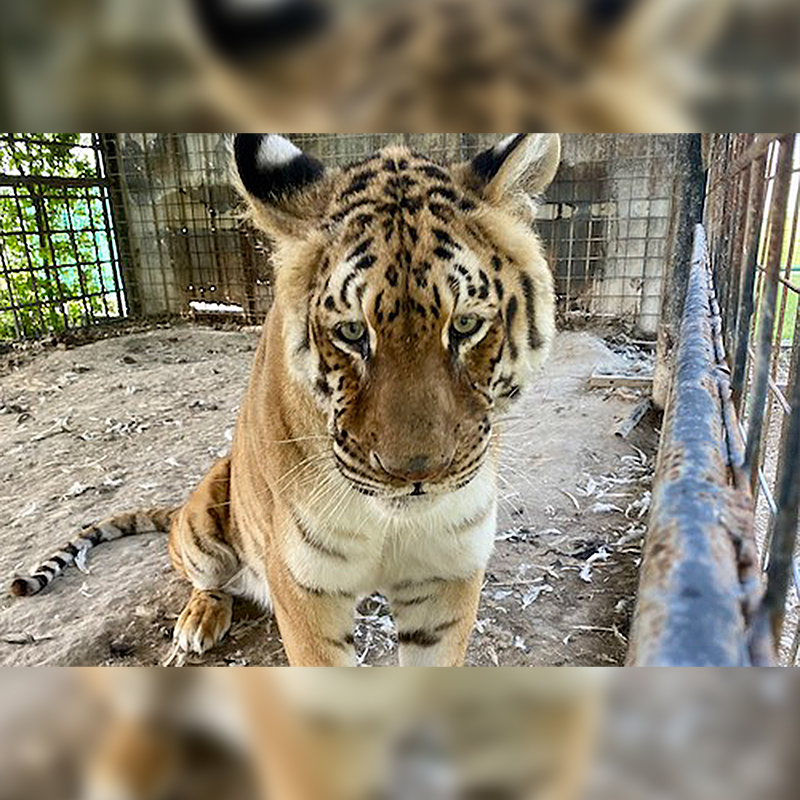
Oakland Zoo via People
Imagine the horror of living in such a filthy, awful place. The cats, all females, were the only animals left at the abandoned facility, which offered cub petting and photo opportunities, according to the Springfield News-Leader.
Elderly Lioness And Her Feline Sisters Suffered
“These big cats were living in small, filthy enclosures. Shelter was provided but was terribly weathered and rotten,” Tanya Smith, president and founder of Turpentine Creek Wildlife Refuge said in a news release. “Aside from some good Samaritans, they were left alone, fed inconsistently and needed veterinary care. We’re so relieved to provide new homes to these animals and help them thrive.”
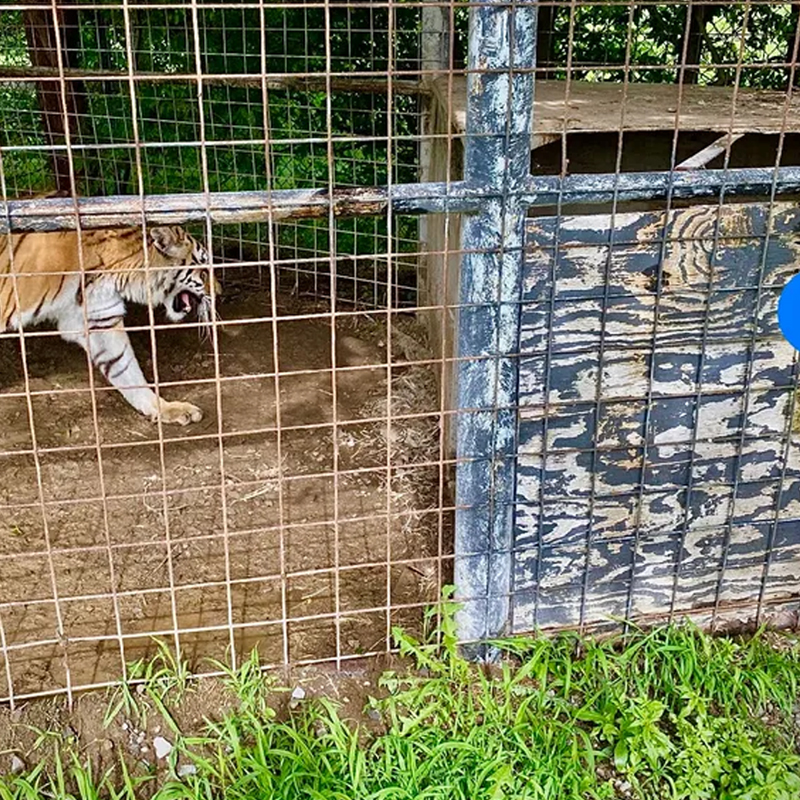
Turpentine Creek Wildlife Refuge via Springfield News-Leader
A “family member” fed and gave the cats water over the years, but conditions for these poor cats were “unbelievable,” said Emily McCormack, the animal curator for the organization. It’s said that is that this pathetic “zoo” was once owned by Joseph Maldonado-Passage, the man who became infamously known as Joe Exotic, thanks to the Netflix true-crime series Tiger King: Murder, Mayhem, and Madness.
The refuge collaborated with the Oakland Zoo and another group, Lions, Tigers & Bears, a sanctuary in Alpine, California. Several of the felines — two tigers, and a tiger hybrid, would undergo a huge change — a cross-country trek in mid-June to safe and spacious new homes in locations across the country, where they would receive excellent care.
The elderly, arthritic lioness is too fragile for a big trek. Her new home is in Turpentine Creek, while the tiger hybrid, who suffers from bowed legs and has a facial wound, went to the Oakland Zoo. One of the tigers also went to the Oakland Zoo, while the other went to Lions, Tigers & Bears.
The Tragic Lives Of Exotic Felines
While things are looking up for these wonderful cats, the sad fact is, in the U.S. there are thousands more kept in captivity. The International Fund for Animal Welfare (IFAW) reports there are as many as 10,000 big cats being kept in captivity, often in shockingly horrible conditions — through private owners, or in “menageries masquerading as rescue sanctuaries, and at unqualified roadside zoos with little oversight or accountability.”
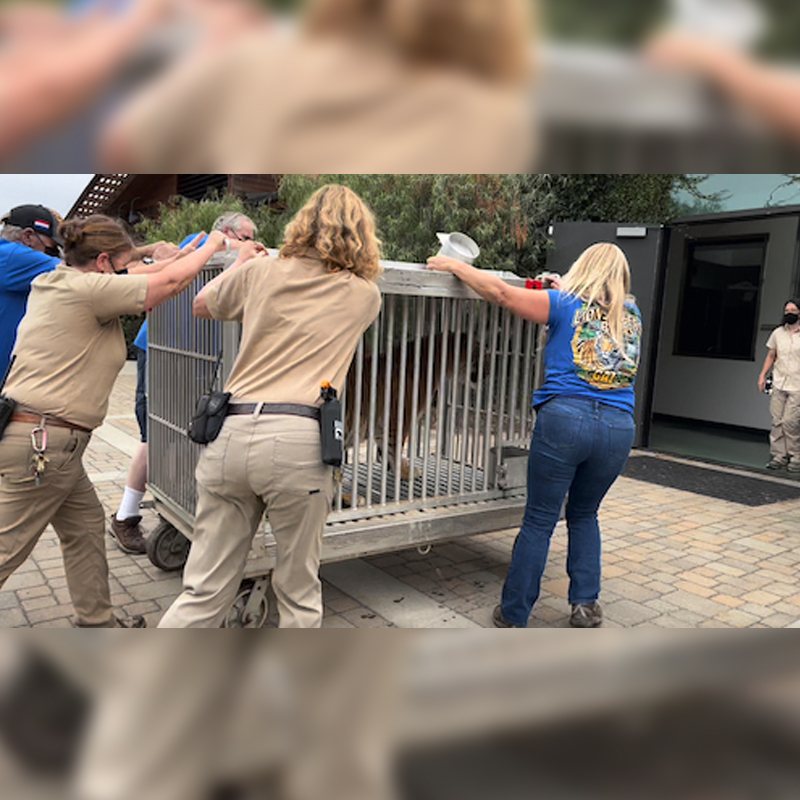
Image via Oakland Zoo
It’s a blessing that we have organizations like Turpentine Creek and Lions, Tigers & Bears that can rescue animals from such sad conditions, but the work is obviously difficult and very daunting sometimes.
“It’s a very frustrating and upsetting situation to see animals like this,” McCormack said, especially regarding the lioness. “She was in a barn and the roof had mostly been torn off by a storm and we know that she was there for seven years, alone.”
When McCormack met the lioness, the first thing she noticed was the sadness in the big cat’s eyes.
“They’re very distant and lonely,” she noted.
A New Life For This Elderly Lioness
The elderly lioness is truly lucky that kind caregivers are looking after her at Turpentine Creek, in collaboration with the Oakland Zoo, People reports.
“We are always ready and willing to collaborate with other accredited facilities when the need for rescue arises,” McCormack says. “We must fight together to resove the big cat crisis we are facing here in the United States. No animals should suffer or live in the deplorable conditions these animals had to endure. The lioness was subjected to solitude 24/7 for seven years that we know of. It was simply inhumane.”
The cruelty of this situation really hits home when you realize that lions reside in prides that generally consist of family members, National Geographic reports. There can be as many as 40 lions in one group, and typically lionesses are the group leaders. They are the primary hunters in the pride. This poor lioness may never have known members of her own family. It’s unlikely she’s ever been able to have the chance to experience a hunt.
The Feel Of Grass Under Her Feet
Above: video via Facebook: Turpentine Creek Wildlife Refuge
Now she’s residing comfortably in the Rescue Ridge area of Turpentine Creek. Here, the team wants to give her a chance to adjust to this new situation on her own terms.
“We’ll let her emotionally, get adjusted, and then we’ll do a full exam here, in a few weeks,” McCormack says. The lioness is estimated to be between 16-and 18 years old.
Living a Peaceful Life
She is gradually coming around to her new life. It must be lovely to feel the grass under her feet. At one point she even strolled into her new yard to look at McCormack.
“She saw me coming,” McCormack said. “She did not get aggressive and she just kind of looked past me and slowly walked herself back into her den area. We’re not going to force her to try to adjust quickly or anything like that, but I think it will be a matter of time.”
“Hopefully sooner or later, she’ll come around and be like, ‘Oh my God, these people are great. They bring food and this is great.’ My hope,” she added, “is that she gets to live out her life very peacefully.”
The even better news is that now she has a bit of company — a male lion named Tsavo. This handsome fellow occupies a nearby enclosure. He’s even been serenading her a little bit to make her feel welcome, McCormack notes. After so many years of torment, these amazing felines can live out their lives in peace.


